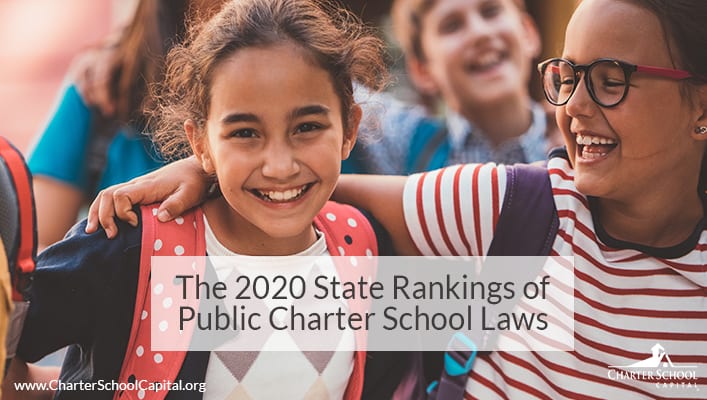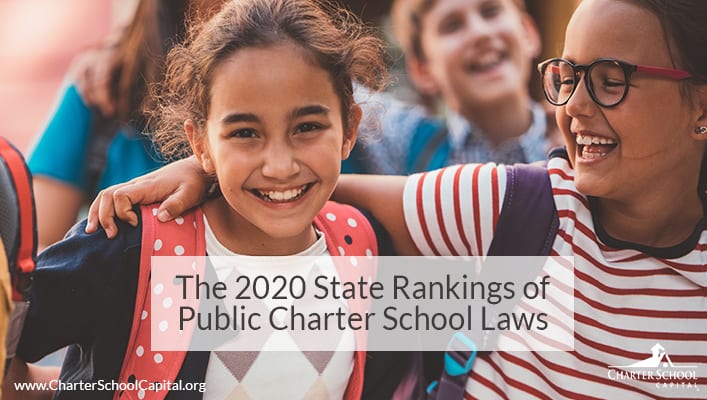 The 2020 Ranking of Public Charter School Laws
The 2020 Ranking of Public Charter School Laws
Editor’s Note: We think it’s vital to keep tabs on the pulse of all things related to charter schools, including informational resources, and how to support school choice, charter school growth, and the advancement of the charter school movement as a whole. We hope you find this—and any other article we curate—both interesting and valuable.
The following report and content are from the National Alliance for Public Charter Schools.
For more than a decade, this charter law rankings report from the National Alliance for Public Charter Schools has analyzed how well each state aligns its charter school law to their “gold standard” model law.
Measuring Up to the Model: A Ranking of State Public Charter School Laws
This report draws on best practices in state policy that have led to the growth of high-quality charter schools, while also addressing weaknesses that, in some cases, have allowed underperforming charter schools and ineffective authorizers to avoid accountability. For example, the model law follows and builds on a report [from 2016] where the National Alliance called for reform of full-time virtual charter schools, too many of which significantly underperform.
The current model law encourages states to provide more equitable support to charter school students, allow for more flexibility to charter schools, and strengthen accountability for charter schools and their authorizers. Specific revisions to the model law include policy updates on full-time virtual schools, funding, authorizers, facilities, flexibility, and discipline.
These 2020 charter school law rankings are the first rankings to reflect the impact of the 2018 election cycle. States like California and Illinois, where previous governors supported charter-friendly policies, elected officials who allowed charter opponents to make headway on anti-charter-policies. Those states saw a drop in their rankings. At the same time, advocates made improvements in funding and facilities policies in many states, with Idaho and Tennessee making the biggest jumps.
